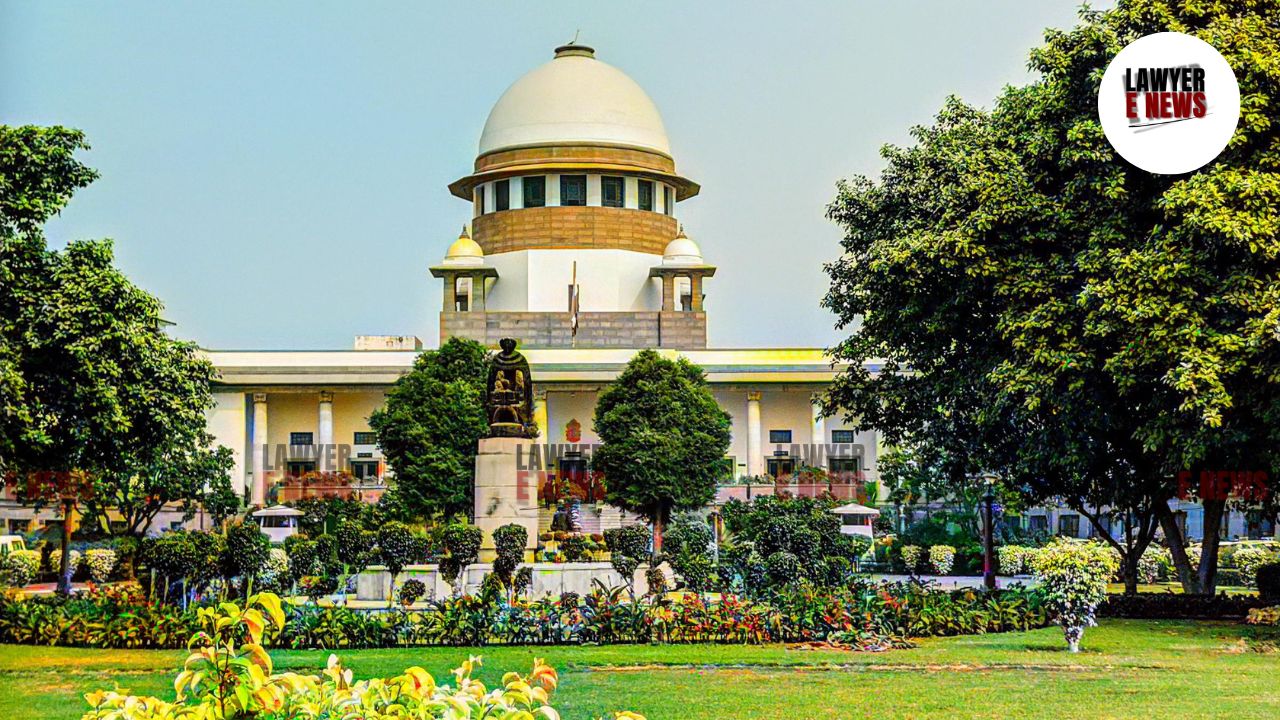-
by Admin
16 February 2026 1:47 PM



"Advocates' Right to Appear in Court is Subject to Procedural Rules" – The Supreme Court has ruled that an advocate's right to appear in legal proceedings must strictly comply with procedural laws and cannot be dictated by informal practices. Modifying its earlier judgment dated 20.09.2024, the Court clarified that only the arguing counsel and one assisting advocate will be recorded in official court proceedings. This decision came in response to a plea by the Supreme Court Bar Association (SCBA) and the Supreme Court Advocates-on-Record Association (SCAORA), which challenged restrictions on marking appearances in Supreme Court records.
Delivering the judgment in M.A. No. 3-4 of 2025 in Criminal Appeal No. 3883-3884 of 2024, a bench comprising Justice Bela M. Trivedi and Justice Satish Chandra Sharma observed that while every advocate has the right to appear in proceedings, such appearances must conform to established court rules. The Court emphasized that "an advocate-on-record (AOR) plays a crucial role in ensuring compliance with procedural norms, and no senior advocate can appear in the Supreme Court without an AOR."
By upholding strict adherence to procedural requirements, the Court reaffirmed that legal representation must align with regulatory frameworks, preventing arbitrary deviations based on past informal practices.
SCBA and SCAORA Argue That Appearance Restrictions Affect Advocates' Professional Growth
The Supreme Court, in its 20.09.2024 judgment, had introduced strict limitations on marking legal appearances, restricting them to only those advocates who argued in court, along with one assisting counsel. The SCBA and SCAORA filed a miscellaneous application, arguing that this restriction had serious implications on the careers of junior advocates and their eligibility for professional advancements such as senior designation, chamber allotments, and voting rights in bar association elections.
Senior Advocate Kapil Sibal, representing SCBA and SCAORA, urged the Court to reconsider the rules and acknowledge the contributions of assisting counsel who may not argue but are actively involved in preparing cases. He contended that restricting recorded appearances to only arguing counsel ignored the broader role played by advocates in litigation.
Supreme Court Holds That Appearances Must Be Recorded in Compliance With Court Rules
Rejecting the argument that informal practices should override statutory provisions, the Court ruled that appearances in Supreme Court proceedings must be governed by the Supreme Court Rules, 2013. The justices observed that while junior advocates contribute significantly to case preparation, only those actively engaged in presenting arguments should have their names recorded in proceedings.
Justice Trivedi, addressing concerns regarding the impact on chamber allotments and bar association voting rights, stated that "the eligibility criteria for professional privileges are governed by independent rules. Court proceedings must strictly adhere to legal requirements and cannot be influenced by external considerations."
The Court reiterated that an advocate-on-record must properly file an appearance slip for an advocate’s name to be recorded and that a senior advocate cannot appear in Supreme Court proceedings unless represented by an AOR. It was further held that court masters must ensure that only those physically present and actively participating in hearings are marked in court records.
Supreme Court Modifies Its Earlier Judgment While Upholding the Principle of Procedural Compliance
The Court modified paragraph 42 of its previous judgment and issued specific directions on recording legal appearances. It clarified that an advocate-on-record must verify and certify a vakalatnama before filing an appearance and that only the arguing counsel and one assisting advocate could be recorded. It reaffirmed that any change in legal representation must be properly communicated to the Court through updated appearance slips.
Justice Trivedi, delivering the final ruling, stated that "the Supreme Court must ensure that all procedural rules are strictly followed. Legal representation in proceedings cannot be dictated by informal customs that contradict established statutory provisions."
Conclusion: A Landmark Decision Reinforcing Professional Discipline in Legal Proceedings
The Supreme Court’s ruling in M.A. No. 3-4 of 2025 underscores the need for strict procedural compliance in legal practice. By modifying its earlier order, the Court has provided clarity on the role of the advocate-on-record in Supreme Court cases, the proper procedure for marking legal appearances, and the obligations of court officials in recording advocates’ participation. This decision ensures that only those actively arguing cases are credited in court records, maintaining the integrity and discipline of legal proceedings.
Date of decision: 19/03/2025
